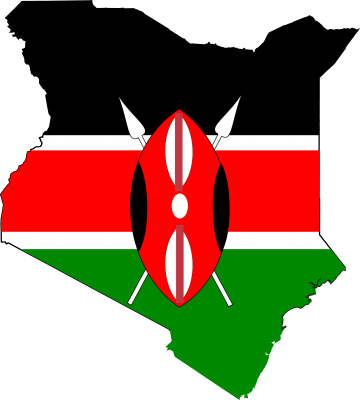By
Joe Khamisi
Until December 31, 2014, my spirits were high that 2015 would be a year of notable political tolerance, a year in which Kenyan people would scale down their ethnic exchanges, enjoy the fullness of the constitution and work collectively to deal with increased insecurity and other challenges.
I expected in the new year that labour strikes would end; tribal suspicions and mistrust would stop and Kenyans would focus energies on positive thinking and actions.
But events of the first week of the year yield no indications life will be any easier this year. I see 2015 as an extremely divisive year, a year of political turmoil fueled by entrenched power struggles and ethnic polarisation; a year of diminished hopes for many Kenyans who thought devolved governments were a panacea for their many troubles.
Despite setbacks caused by the sudden deaths of Otieno Kajwang, the opposition’s most fiery defender, and Raila Odinga’s heir apparent, Fidel, the Coalition for Reforms and Democracy (CORD) appears set to show its muscle this year.
If 2014 was a year of confusion, wasted opportunities and disorganisation in the opposition ranks, 2015 is likely to see a conflation of open defiance and more court battles against government backed laws; all this intended to disorient the government and make the country as ungovernable as possible ahead of the general elections.
Currently, tribal tensions are at their highest peak with both sides of the political divide bumbling away in social media with messages saturated with hate and rage. Some of the posts are nothing but gossipy scooplets meant to irritate, while others are distasteful pokes, issued at a time when Kenyans are mourning an important death. All this shows the level of lingering tribal animosity; and displays a dizzying decline in morals and uprightness among some of us.
If Kenya burns as it did in 2007/2008, it is not just the government or the opposition that will suffer. It is all of us.
But that is not the only reason why I fear for Kenya in 2015. The decline in tourism is likely to prevail in the new year. With hotels showing record low turn-outs especially at the Coast, people will continue to be unemployed, and related trades will suffer. The Treasury will be handicapped in fulfilling its obligation of funding the country’s development, and the goals of both the Jubilee Coalition manifesto and Vision 2030 could be in jeopardy.
This week’s teachers’ strike, even if resolved amicably, will not be the only one expected this year. Since not all grievances have been resolved in the health and higher education sectors, Kenyans should expect doctors and nurses as well as lecturers and professors to down their tools before the end of the 352 days.
We all know that industrial disorder is inimical to the economy.
Kenyans will also wait anxiously to see whether the new Cabinet Secretary for Internal Security, Joseph Nkaissery, will inject any new ideas into a docket whose performance rating is among the lowest in the country. If he fails to stop terrorist attacks from happening by stamping out corruption, boosting morale in his officers and building capacity to allow a more efficient response and overall service delivery, the security situation in the country will most likely to go back to where it was during the tenure of his predecessor, Joseph Ole Lenku.
One other big challenge President Uhuru Kenyatta will face this year will be how to rationalise public sector expenditure vis a vis development needs of the country. 2014 saw a complete failure on the part of the government to curb wastage in the two-tier government, the result being Treasury could not balance its books. In order for the government to reduce fiscal deficits and cut down on recurrent expenditure, it must be willing to take far more drastic action than it did unsuccessfully in 2014.
Corruption is another issue. Kenyans are still waiting to see how the President will deal with this matter. We are yet to see anyone within the presidency – said to be a den of corruption – punished. The same applies to Ministries and departments. If there is a time to slay this dragon it is now. Failure to do so will only give the opposition ammunition with which to pummel the government come election time in 2017.
Joe Khamisi
Joe Khamisi is a former journalist, diplomat and Member of Parliament. He is also the Author of the Politics of Betrayal:Diary of a Kenyan Legislator, a political memoir about the situation in Kenya between 2001, when the ruling party of President Daniel Arap Moi, the Kenya African National Union (KANU), merged with Raila Odinga’s National Development Party.
The book also narrates cases of corruption in Parliament and in the Media and records Senator Obama’s visit to Kenya in 2006. As a friend of Barack Obama Senior, the author also remembers the times and tragedies of the American-educated economist.
Joe Khamisi’s second book, a biography, ‘Dash Before Dusk’, has recently been published and is now on sale.





No Comments Yet!
You can be first to comment this post!